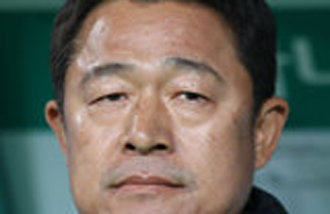[Opinion] Special Excise Tax on Locally-Made Furniture
[Opinion] Special Excise Tax on Locally-Made Furniture
Posted February. 06, 2008 03:09,
Ten years ago when the nation was in the midst of a financial crisis, polarization of consumption was far worse. The more expensive, the more attractive. Consumers chose expensive items when they bought shoes, handbags and even underwear. At that time, a store in Gangnam selling building materials was reportedly asked to decorate bathrooms with luxurious goods approximately ten times a month. They included whirlpool bathtubs imported from Italy worth 20 million won, sauna booths with beaming infrared rays amounting to 30 million won and faucets covered with gold amounting to 2 million won. Imported wardrobes with a price tag of 30 million won and sofas worth 15 million won were even temporarily in short supply.
Arent there any furniture made by Korean firms which can compete with imported goods? The answer is almost always no, based on statistics from special excise taxes. The government imposes special excise taxes up to 20 percent of the amount in excess of 5 million won of factory price per piece of furniture and 8 million won per furniture set. Between 2001 and 2005, it collected only 75 million won of special excise tax on furniture or 15 million won a year. It means that local furniture makers sold less than 40 pieces of furniture amounting to 7 million won over five years. The special excise tax has a strong negative influence on the furniture industry. Local furniture makers have focused on producing furniture less than 5 million won in order to avoid the special excise tax. Moreover, they hesitate to develop technologies.
Nevertheless, demand for high-quality furniture exists. Accordingly, expensive imported furniture meets this demand. Furniture importers have avoided heavy taxes by importing tables and chairs, which cost up to 8 million won, separately, and then sell them as a set. Though the Korea Federation of Furniture Industry Cooperatives, chaired by Choi Chang-hwan, has urged the government to abolish the special excise tax on furniture, not adopted in most other nations, it has failed. Choi says, Due to the governments special excise tax, all of Koreas luxury furniture makers vanished a few years ago. The Finance and Economic Ministry said, We are scheduled to reconsider the special excise tax on furniture by May. It seems the government doesnt see much urgency with the issue.
Recently, domestic furniture makers have shown great interest in tariffs on raw and subsidiary materials. The government does not impose any tariff on finished furniture made in wood-producing countries. However, it charges an 8 percent tariff on imported wood. This biased tariff policy deprives local furniture makers of price competitiveness. The furniture industry is asking the government to introduce at least a tariff quota system which applies low tariffs on imported materials not exceeding a specified volume.
Editorial writer Hong Gwon-hee, konihong@donga.com
Headline News
- Iran blames US sanctions for helicopter crash that killed president
- Pres. Yoon vetoes investigation into death of marine
- “Croatia Holds a Business Forum in Seoul…Looking forward to the development of trade relations”
- Samsung names new chief for semiconductor business
- Seoul City plans to expand welfare benefits







